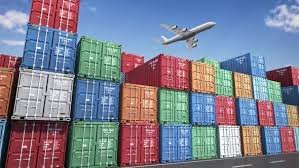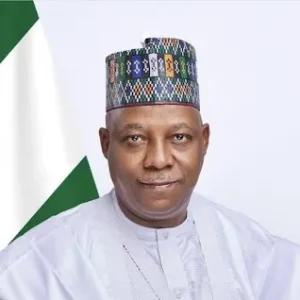
Operators have blamed the Federal Government’s ports reforms for the under-utilisation of the over N3 trillion investment in bonded terminals in the country.
Investigation revealed that since 2006 when the government concessioned the modern ports to concessionaires, over 90 per cent of bonded terminals in the country currently operate below 15 per cent utilisation capacity.
Some of these concessionaires are APM Terminal, ENL Consortium, Ports and Cargo Handling Services Limited, Ports and Terminal Multipurpose Limited (PTML) and Eko Support Services Limited (ESS), among others.
The General-Secretary, Association of Bonded Terminal Operators of Nigeria, Haruna Omolajomo, noted that most of the concessionaires are foreigners who are in Nigeria to make huge profits, thereby ignoring local content.
He said the concessionaires moved in and chose to keep containers in the ports, as they preferred to deal directly with the importers and agents, which has left operators of bonded terminals to suffer in pain.
He said this is happening since the government concessioned the ports without any published conditionalities neither identifying the organisation of government saddled with a regulatory or supervisory role.
Omolajomo noted that bonded terminal operators are licensed by the Nigeria Customs Service under the Customs and Excise Management Act (CEMA) Cap 84 LFN 2004 as Bonded Warehouse/Terminal Operators and are also globally recognised by the World Trade Organisation ( WTO), United Nations Conference on Trade and Development (UNCTAD), World Customs Organisation (WCO) as they form an integral part of ports operations.
He said the premier port is supposed to be a transit zone, as stipulated by the International Maritime Organisation (lMO) that states cargo must leave the port within 24-48 hours to off-dock or to bonded terminals before final clearing by the owners globally.
He said there are over 40 bonded terminals in Lagos, whose operations include improving and providing off-dock facilities for the purpose of eliminating congestion in the ports and serving as holding bays for containers under a secured and bonded environment that ensures enhanced revenue for all stakeholders.
Omolajomo added that bonded terminals can handle all but are not limited to exports, imports, holding bays, warehousing, stemming cargoes or containers landed on a vessel either by barge, road or train among others.
He said despite all these operations of bonded terminals with international and local backings, the ports are used as big storage facilities with containers stacked as high as six against international best practices, thereby affecting bonded terminal capacity utilisation.
“Due to Federal Government’s ports reforms which led to the handing over of ports terminals to concessionaires, more than N3 trillion of bonded terminals investment remain under-utilised. As we speak, more than 90 per cent of bonded terminals today cannot boast of 15 per cent capacity utilisation, as most of the bonded terminals are being denied cargoes by the concessionaires even at the peak of thick congestion.
“Could you imagine a bonded terminal that can accommodate 600 containers at full capacity, but is currently accommodating 67 containers? This is not normal considering the huge amount of money invested on the terminal facilities. To these concessionaires, they are not duty-bound to patronise the bonded terminals,” he stated.
He said bonded terminals have positively impacted space availability and utilisation, as they complimented the efforts of the Nigerian Ports Authority to decongest the ports.
Omolajomo added that during the National Economic Empowerment and Developmental Strategies (NEEDS), where private individuals were encouraged by the federal government to invest and participate economically in maritime businesses, bonded terminal operators borrowed not less than N3.5 trillion to finance acquisition and improvement of facilities.
They also engaged other third parties service providers such as Haulage Service Providers, Security Service Providers and l.T Service Providers among others.
He said despite all these investments, the bonded terminals are not working in full capacity as expected in their area of operations as they are not patronised.
Omolajomo also debunked the allegations that bonded terminals lack equipment and personnel to sustain the business.
Omolajomo said while the CEMA Act is undergoing amendment, it should recognise and clearly state that a conscious policy of patronage of the cargoes from incoming vessels should be included into bonded terminals/off-dock terminals in line with federal government policy of local content.
He said customs, through the CEMA law, should recognise a one-stop shop for the processing of stemmed containers into the bonded terminals, adding that processing should be electronically controlled through sending of CAL to all concerned by E-bond provided by the bonded terminals.
He also added that Customs should ensure dwell time of vessels on the waterways do not exceed seven days, noting that all the vessels should be allocated to the indigenous bonded terminals to avoid delay.








